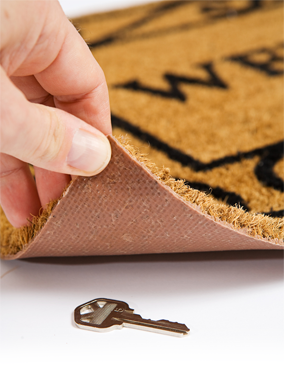When it comes to home security, most homeowners think about door locks and alarms. These are, of course, very important. However, there is also a lot you can do around your property to prevent the possibility of a break-in.
One important part of home security is outdoor lighting. Your home doesn’t need to be lit up like a baseball diamond at night, but your exterior lighting should illuminate your yard enough to be a deterrent to burglars.
Some burglars hide around the property and wait for someone to arrive and open the door so they can use that opportunity to force their way into your home.
Security experts suggest that you walk around your property and look for areas where someone could hide, such as behind a tall shrubbery or a tool shed. Make sure these areas are well lit.
Pay particular attention to lighting around exterior doors, especially the back door.
Experts also recommend that exterior lighting be installed with a timed dimmer. The lights can then be set to cast a bright light in the early evening, and then a dimmer light throughout the rest of the night.
Lights installed with motion detectors can also be effective in certain areas. The sensors will cause the light to turn on or brighten when someone comes onto that part of your property. Generally, thieves will flee as soon as they see a light turn on.
Do you hide a spare key under the front door mat or in a flower pot? You may think you have found a clever spot, but experienced thieves know all the common hiding places. So, if you need to have a spare key available, put it in a small combination lock box and hide the box. Even if a burglar finds the box, he won’t be able to open it and access the key.

